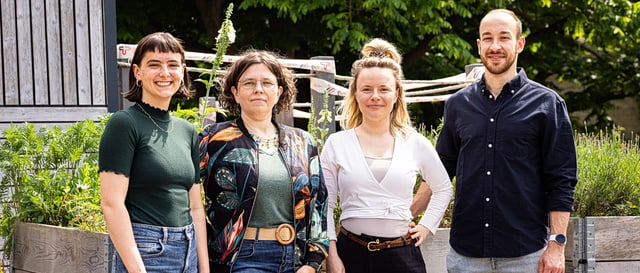Green Transition Attitudes: Social Risks and Deservingness in the context of Climate Change

The “Green Transition Attitudes: Social Risks and Deservingness in the context of Climate Change” project seeks to elucidate changes in public perceptions of deservingness towards various welfare beneficiaries in Europe amid the challenges of climate change and the transition to carbon-neutral societies. The primary objective is to understand how social risks associated with climate change and transition policies are perceived and what welfare policies are likely to gain public and political acceptance, thereby enhancing their efficacy.
Scientific consensus underscores the necessity for rapid and transformative decarbonisation to avert the worst impacts of climate change. Both climate change and its associated mitigation and adaptation policies can exacerbate existing social risks, disproportionately affecting disadvantaged populations, regions, and nations. Such dynamics place additional strain on welfare states, which must meet human needs within environmental limits, even amid global competition and low economic growth.
The project innovates social research by examining new lines of social conflicts and cleavages in a Europe confronted by climate change and NZT ambitions. Specifically, the project addresses three key research questions:
1. How are social risks related to climate change and NZT framed publicly and perceived by different social groups and individuals?
2. Who is perceived as deserving to benefit from public support in this evolving context?
3. How do public framings, group-specific, and individual perceptions of social risks and deservingness play out across different national contexts?
Traditional social risks, emerging from industrialisation and urbanisation, include old age, ill-health, and unemployment, while second-generation risks related to deindustrialisation, globalisation, and demographic changes include balancing work and family responsibilities and inadequate labour market skills. The project shifts focus to third-generation social risks emerging from climate change and NZT, such as floods, droughts, heavy storms, heatwaves, and water stress, which threaten living and working conditions, economic security, and health. Low-income groups are particularly vulnerable, with limited capacity to respond. Additionally, policies aimed at NZT might unintentionally deepen social inequalities by imposing costs unevenly across different social groups. Addressing these third-generation social risks, welfare states must re-design their programs in response to complex interactions between economic and social systems. New social insurance schemes, active labour market policies, poverty relief, and extended health programs are among the discussed policy responses. Structural conditions like climate exposure and economic decline, as well as national NZT strategies and social risk population structures, will shape these welfare actions (Zimmermann, forthcoming). As climate change challenges confront existing welfare paradigms, perceptions of who deserves public support undergo significant re-evaluation. The well-established deservingness theory, which focuses on control, attitude, reciprocity, identity, and need (CARIN criteria), provides a foundation for this analysis. However, climate change and NZT present new groups deserving support, such as climate refugees and youth with insecure futures, and may alter traditional deservingness criteria. Understanding these shifting perceptions is crucial for effective policy-making. Policies targeting only low-income groups may be perceived as unfair by middle-income groups facing high climate-related expenses (“paradox of redistribution”). Public support for welfare programs may increasingly depend on environmental behaviors, calling for nuanced policy designs that balance public sentiment and practical support requirements. Addressing knowledge gaps in public framing of climate-related social risks, the relevance of deservingness theory in this new context, and national variations in perceptions, the project brings together international experts in sociology and political science. Through cross-disciplinary collaboration and stakeholder engagement, we aim to develop actionable policy recommendations that enhance the legitimacy and effectiveness of welfare programs in the age of climate change and NZT.
For more information visit our project website: www.greentransitionattitudes.com.
Funded by the Deutsche Forschungsgemeinschaft (DFG)
Research team: Katharina Zimmermann, Vincent Gengnagel, Ludwig Ipach, Christian Möstl, Beke Langosch
International partners: Wim Van Lancker, Adeline Otto, Maša Filipovič Hrast, Tatjana Rakar
Project duration: 01.06.2024 - 31.05.2027
Related publications:
Zimmermann, K., & Gengnagel, V. (2023). Mapping the social dimension of the European Green Deal. European Journal of Social Security, 25(4), 523-544.
Zimmermann, K., & Gengnagel, V. (2023). Green deservingness, green distinction, green democracy?Towards a political sociology of a contested eco-social consensus. CPE, 7. (2) 2022, 292 – 303.
